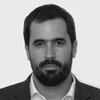Macri victory signals shift to the right in Argentina
Candidate will bring an end to years of ‘kirchnerism‘ after beating government-backed rival


Liberal candidate Mauricio Macri, from the Cambiemos (Let’s Change) party, will be the next president of Argentina, after beating Daniel Scioli (Peronist Victory Front) in a tight race at the country’s presidential runoff on Sunday. With 99 percent of the vote counted, Macri had secured 51.4 percent of the ballots, compared to 48.6 percent for Scioli.
Macri, who will replace Cristina Fernández de Kirchner in the Casa Rosada presidential palace, took the win with less than a three-point advantage, which amounts to just over 700,000 votes in a country of 32 million people. Argentina is now bearing witness to a radical shift to the right after 12 years of Kirchnerism – and it is doing so with unexpected calm.
I ask those of you who did not vote for us to join this change. This Argentina will not be the brainchild of a visionary who has all the solutions”
After a tense campaign, the elections passed by without incident. It was almost as if everything had been decided in the first round, which is where the real change happened. At the October polls the conservative Macri surprised voters by closing in on the government-backed candidate Scioli, who had been hand-picked by Fernández de Kirchner.
Kirchner’s camp lost but it hung on fiercely despite its gradual 12-year decline. Macri supporters attribute this resistance to the fear campaign that Scioli promoted during the last few weeks, targeting the poorest members of society.
Macri and running mate Gabriela Michetti took notice of this and launched a message of friendship to those who did not vote for them. “Many poor families are very worried. I want to tell you that there is nothing to fear,” Michetti said. “I ask those of you who did not vote for us to join this change. This Argentina will not be the brainchild of a visionary who has all the solutions. That does not exist. My task is to help you find the way,” Macri said in a speech that gave little in the way of political ideas and focused on “uniting Argentineans.”
His supporters were wildly enthusiastic. The streets of Buenos Aires were filled with cars honking their horns. But Macri and his camp expressed a certain level of restraint once they knew how slim their victory was. The party ended very early and though the candidate danced, as per tradition, excesses were avoided. “This change cannot limit itself to revenge or the settling of scores,” the president-elect said, thus holding out his hand to Kirchner supporters. Macri is in the minority in Congress and in the Senate meaning that he will need to negotiate in order to govern.
The victor talked about the immigrant roots of the Latin American country. He is the son of an Italian immigrant who came to Argentina when he was 18 years old and then became a millionaire. “Our grandparents, our parents crossed an ocean in a boat searching for opportunity, without knowing what they were going to find. It is up to us to take up the baton.”
Macri, who began his speech by thanking his family, associates, friends, and secretary told supporters: “You made the impossible possible. I ask God to guide me to help every Argentinean find their own way to success. I ask you, please, do not desert me.”
Lilian Tintori, wife of imprisoned Venezuelan politician Leopoldo López, joined Macri on Sunday. Her presence suggests that the president-elect is intent on asking the free-trade bloc Mercosur to suspend Venezuela as a member because of its alleged violation of the group’s democratic principles. Mercosur will meet on December 21. Macri’s decision also hinges on the results of the upcoming Venezuelan elections on December 6 and how President Nicolás Maduro responds, but his request at Mercosur is likely to be his first big international policy decision.
English version by Dyane Jean Francois.










































